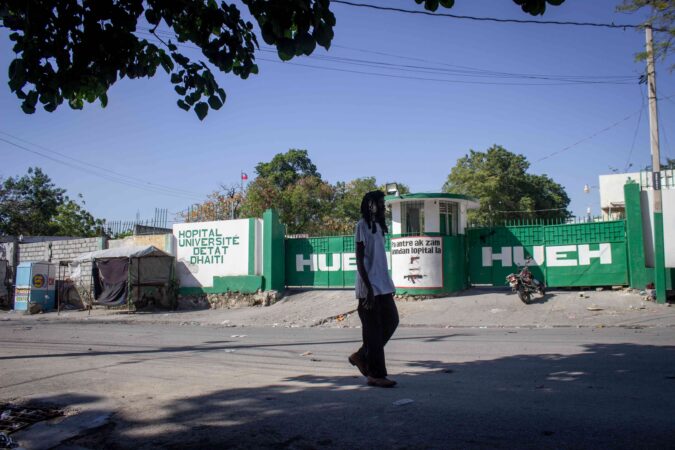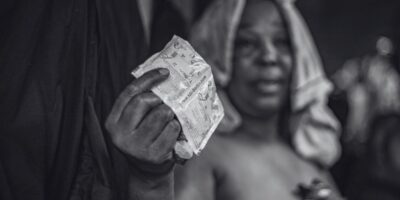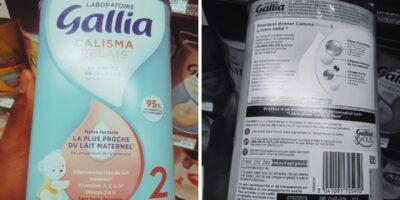Due to this shortage, many cancer patients face major difficulties in getting their treatment.
According to Pierre Hugues Saint-Jean, President of the Haiti’s Pharmacists Association (APH), this shortage is the result of the closure of the border with the Dominican Republic, one of the country’s main sources of medicines.
He also highlights the interruption of imports through the ports and airports of the metropolitan region in recent months, as well as the looting of numerous pharmaceutical distribution agencies in the lower part of the city.

View of the Hospital of the State University of Haiti (HUEH), the largest hospital center in the country, today out of service, according to statements by its director Jude Milcé to AyiboPost. | © Jean Féguens Regala/AyiboPost
“More than 20 pharmacies were attacked during the recent riots on Rue Monseigneur Guilloux,” adds Saint-Jean.
As a result, regular supplies have been disrupted, leading to shortages, notably of medicines for chronic conditions such as diabetes and hypertension.
More than 20 pharmacies were attacked during the recent riots on Rue Monseigneur Guilloux.
– Pierre Hugues Saint-Jean
Many cancer patients are experiencing significant difficulties due to this shortage, according to Dieuseul Cantave, president of the Haitian Oncology Society.
“Bromazepam, often prescribed as a companion medication to chemotherapy patients, has become difficult to obtain over the past month. We are replacing it with lorazepam, also increasingly rare,” reveals Dr. Cantave.
Medications used to reduce the side effects of a first-line treatment are also more difficult to come by.
“Out of 10 cancer patients, only 3 or 4 manage to get treatment, and this with difficulty because of the scarcity of drugs,” explains Cantave.
Read also: Psychiatric patients in P-au-P go without care for two months
In February 2024, a report from the International Agency for Research on Cancer reported an increase in new cases of cancer in Haiti, from 12,404 in 2020 to 13,860 in 2022.
In February 2024, a report from the International Agency for Research on Cancer reported an increase in new cases of cancer in Haiti, from 12,404 in 2020 to 13,860 in 2022.
The shortage also affects areas outside of the capital.
From Bainet, Milliana Exumé, in her sixties, struggles to find her medication in the South-East. Usually, she goes to Port-au-Prince, but insecurity complicates her travels.
Medications used to treat hypertension and diabetes are becoming scarce.
“The price of insulin has increased considerably,” explains Hugues Saint-Jean, medical coordinator at Saint-Damien Pediatric Hospital.
Kelly Pauyo Lohier, suffering from osteoarthritis and diabetes, must travel more than 5 kilometers to find the Metformin and Glyburide necessary for her treatment. “Drugs for osteoarthritis, like B-Tres Dolo, have not been available for months,” she adds.
Read also: Haiti: hospitals overwhelmed by events
Edrige Oris, manager of Aloe Biosanté, moved her business from Rue Monseigneur Guilloux to Delmas 33 after being ransacked by bandits.
According to him, several drug suppliers have ceased operations. “Omeprazole, commonly prescribed for gastric conditions, is increasingly rare, even among wholesalers. The package which cost 200 gourdes increased to 475 gourdes,” complains Oris.
Out of 10 cancer patients, only 3 or 4 manage to get treatment, and this with difficulty due to the scarcity of drugs.
– Dr. Dieuseul Cantave
Other medications such as the Omeprazole injection, the B-Complex injection, ketamine, morphine and Gastrogel are also becoming more difficult to obtain.
Many pharmaceutical laboratories and wholesalers in Port-au-Prince have closed, including the Farmatrix laboratory, specialized in the local production of pharmaceutical products, according to a source.
Discover this AyiboPost report published in November 2023 on the Farmatix laboratory and its ambitious projects including the export of medicines:
This situation encourages the manufacture of fake medicines (counterfeit drugs).
“In a context of scarcity, products acquire greater value, allowing malicious individuals to take advantage of the situation,” warns Oris.
The drug market in Haiti lacks control and surveillance.
A 2014 report from the Directorate of Pharmacy, Medicines and Traditional Medicine of the Ministry of Public Health and Population already warned of the deficiencies in the sector.
Haiti does not have a national drug quality control laboratory.
Read also: More than a thousand HIV-positive patients without medication in P-au-P
Material resources and equipment affect the production and quality of products in circulation. The availability of medicines and inputs remains far from optimal, with the majority of registered pharmacies located in the capital.
“In such a situation, day after day, the risk to the health of the population increases,” concludes Pierre Hugues Saint-Jean, president of the APH.
Cover image: A patient holding pills to swallow. | © freepik
Keep in touch with AyiboPost via:
► Our channel Telegram : Click here
► Our Channel WhatsApp : Click here
► Our Community WhatsApp : Click here







Comments